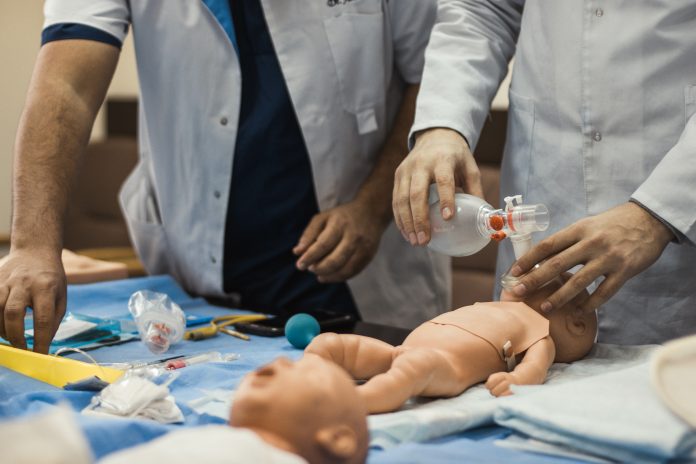
In light of the Patient Safety Conference taking place in Stockholm in October, Dr Michael Wagner, neonatologist, intensivist and researcher at the Comprehensive Center for Pediatrics of the Medical University of Vienna, and member of the Board of Directors of the European Patient Safety Foundation (EUPSF), discusses the benefits of using simulation to develop medical and especially non-medical skills essential for crisis management and beyond. He also explains how this type of approach can contribute to the cultural change needed to improve patient safety.
Why do you advocate the use of simulation to improve patient safety?
The purpose of simulation is to provide healthcare professionals with a safe environment where they can improve their ability to deal with situations similar to real-life emergencies. In my area of practice and research, namely neonatology and pediatric healthcare, it is widely accepted that such educational methodologies are effective in acquiring and maintaining medical and non-technical skills to recognise and successfully resuscitate critically ill or injured patients. The added value of this kind of approach lies in the fact that medical training focuses primarily on technical skills and individual excellence, whereas other factors, such as the quality and fluidity of communication, leadership, and teamwork, also come into play when dealing with this type of situation. However, due to lack of funding and insufficient staffing, there are still barriers to the wider use of simulation training across Europe, and there are also areas that could be improved, such as a more multi-professional and interdisciplinary teaching approach.
But as medical professionals work together all the time, there should be plenty of opportunities to improve teamwork. So why add it to the list?
Medical teams’ cooperative way of working, in my area but also beyond, is limited by a whole series of factors specific to the work environment of the health sector. It is important to understand that throughout the training and career of a healthcare professional, he or she is pushed to excel. The right to make mistakes is often not recognised and it is all the more present in everyone’s mind because a fault may even be legally sanctioned.
The distribution of roles and responsibilities between doctors, nurses and care assistants also leads each of them to pay attention to only a part of the patient’s reality or care. It is therefore not surprising that cooperation and teamwork need to be trained, and the day when the success of a medical act really depends on it makes you realise that you cannot efficiently work together without proper training. This is a very demotivating situation for health professionals when they know that the quality of care is not up to what they could have given. It should not be underestimated because it can even lead in some cases to burnout and voluntary departure.
In a way, you are pointing to the need for a real cultural change, to move from an individualistic to a cooperative approach to care. Is it reasonable to imagine that a few simulation sessions can turn such an established order upside down?
I am not saying that simulation-based training alone will be enough to revolutionise the approach to care, but it seems to me to be a good start. Sharing what we did well and not so well during a simulation exercise lays the foundation for a useful team dialogue in other circumstances. But, of course, other actions are also needed, in a more holistic and systemic way, as will probably be highlighted during the EUPSF’s Patient Safety Conference organised in collaboration with FOKUS Patient. For example, the principles on which training is based and the way incidents are reported and managed must be rethought and lead to a complete redesign. I am hopeful things will change in the near future because I believe that many health actors begin to understand the limitations of the current system.
By not questioning what the leader says, by not sharing the causes of errors or near-misses, it is obvious that we are preventing ourselves from improving. In fact, as medical caretakers, our goal should be to achieve a way of working as a team in which everyone dares to express themselves and make their contribution to the patient’s health. Promoting simulation is a way of drawing attention to this point, to the fact that it is the interest of the patient and the search for quality of care that must guide the medical approach, and nothing else.








